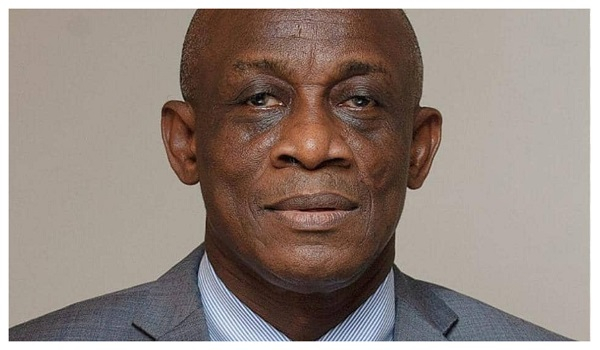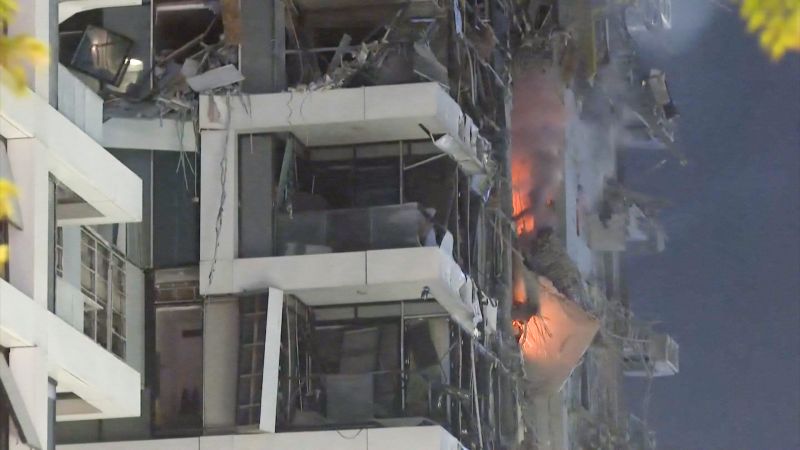Israeli military conducts airstrikes on Iran
Kenneth Udeh
Israel confirmed it carried out the major military strike on Iran targeting what it described as key components of Iran’s nuclear weapons and ballistic missile programs.
There are also reports that Iran has retaliated with about 100 drones towards Israel in the early hours of Friday.
The attack comes despite U.S. calls for restraint as nuclear negotiations with Tehran were set to continue.
Prime Minister Benjamin Netanyahu said the Israeli offensive focused on Iran’s “main enrichment facility” and nuclear scientists central to Iran’s atomic program.
“We targeted Iran’s leading nuclear scientists working on the Iranian bomb,” he stated, adding that the operation also struck at the heart of the country’s missile development infrastructure.
Among the high-profile casualties reported by Iranian state media were Maj. Gen. Gholam Ali Rashid of the Islamic Revolutionary Guard Corps (IRGC), Fereydoon Abbasi, a former atomic energy chief, and nuclear scientist Mohammed Mehdi Tehranchi.
In a particularly serious claim, Tasnim News, affiliated with the IRGC, reported that IRGC commander-in-chief Hossein Salami was killed in the strike on the corps’ headquarters in Tehran.
Iran’s Supreme Leader Ayatollah Ali Khamenei vowed retaliation, declaring, “Israel has brought a bitter and painful fate upon itself, and it will certainly face it.”
IDF Spokesperson BG Effie Defrin, in a video posted on X ( Formerly Twitter ), said that the Iranian regime has called for the destruction of the state of Israel, planning and advancing concrete military plans to do so.
“Over the past few months, intelligence has shown Iran is closer than ever to obtaining a nuclear weapon.
“This morning, the IDF began preemptive and precise strikes targeting the Iranian nuclear program in order to prevent the Iranian regime’s ability to build a nuclear bomb in the immediate time frame.”
Defrin said Israel had “no choice,” describing Iran as an “imminent and existential threat.” He added that Iran obtaining nuclear weapons presented a danger not just to Israel, but “the entire world.”
According to Israeli Prime Minister Benjamin Netanyahu, the operation code-named “Operation Rising Lion” will “continue for as many days as it takes to remove this threat.”
“This operation will continue for as many days as it takes to remove this threat. For decades, the tyrants of Tehran have brazenly and openly called for Israel’s destruction.
“They backed up their genocidal rhetoric with a program to develop nuclear weapons. In recent years, Iran has produced enough highly-enriched uranium for nine atom bombs – nine.
“In recent months, Iran has taken steps that it has never taken before, steps to weaponise this enriched uranium, and if not stopped, Iran could produce a nuclear weapon in a very short time. It could be in a year, it could be within a few months – it could be less than a year.
“This is a clear and present danger to Israel’s very survival. Eighty years ago, the Jewish people were the victims of a Holocaust perpetrated by the Nazi regime.
“Today, the Jewish state refuses to be a victim of a nuclear Holocaust perpetrated by the Iranian regime.
“As Prime Minister, I’ve made it clear time and time again, Israel will never allow those who call for our annihilation to develop the means to achieve that goal.
“Tonight, Israel backs those words with action. We struck at the heart of Iran’s nuclear enrichment program. We struck at the heart of Iran’s nuclear weaponisation program. We targeted Iran’s main enrichment facility. We targeted Iran’s leading nuclear scientists working on the uranium bomb.
“We also struck at the heart of Iran’s ballistic missile program. Last year, Iran fired 300 ballistic missiles at Israel.
“Each of these missiles carries a ton of explosives and threatens the lives of hundreds of people.
In response, the United Nations expressed grave concern. A spokesperson for Secretary-General António Guterres condemned the escalation, particularly the targeting of nuclear infrastructure amid ongoing U.S.-Iran talks.
The Israeli Defence Forces (IDF) described the assault as a “preemptive, precise, combined offensive” involving dozens of air force jets striking multiple military and nuclear targets across Iran.
“Today, Iran is closer than ever to obtaining a nuclear weapon,” the IDF said in a statement. “Weapons of mass destruction in the hands of the Iranian regime are an existential threat to Israel and the wider world.”
Netanyahu, in further remarks, described the operation as essential to Israel’s survival:
“This operation will continue for as many days as it takes to remove this threat.”
The U.S. distanced itself from the Israeli move. Secretary of State Marco Rubio said Washington was not involved in the attack and emphasised that America’s top priority remains the safety of its forces in the region.
“Israel has acted unilaterally and informed us it was a matter of self-defence,” Rubio stated. He also warned Iran against targeting U.S. interests or personnel.
The strike appears to have driven a wedge between Israel and the Trump administration, which was preparing for a sixth round of nuclear negotiations with Iran in Oman this Sunday. U.S. officials fear the Israeli operation may derail diplomatic progress.
Domestic political reactions in the U.S. have been mixed. Senior Democratic lawmakers condemned the attack, accusing Israel of undermining diplomacy.
Senator Chris Murphy called it “further evidence of how little respect world powers, including our own allies, have for President Trump.”
Senator Jack Reed labelled the operation a “reckless escalation” and called for urgent restraint.
Republicans offered more support. House Intelligence Committee Chair Rick Crawford said, “I regret that we’ve come to this breaking point, but Iran must not be allowed to acquire nuclear weapons.”
The International Atomic Energy Agency (IAEA) confirmed that Iran’s Natanz facility, central to its uranium enrichment efforts, was among the targets.
Director General Rafael Grossi said the agency was “closely monitoring” the situation, calling it “deeply concerning.”
U.S. officials remain on alert for possible Iranian retaliation. Following the strike, the State Department advised U.S. embassy personnel in Israel to shelter in place and authorised the voluntary departure of non-essential employees from the region.
The geopolitical landscape in the Middle East has been thrust into fresh turmoil following Israel’s targeted strike on Iran’s nuclear programme, which reportedly resulted in the death of a senior member of Iran’s Revolutionary Guard.
While details remain fluid, the strike has already triggered a wave of international reactions and speculative analysis about the implications for regional stability, U.S. diplomacy, and Iran’s likely response.
Initial reports suggest that the United States may have had prior knowledge of the Israeli operation, although the White House maintains it remains committed to a diplomatic resolution to tensions with Iran.
Analysts say this underscores Washington’s effort to avoid direct confrontation, even as its allies adopt a more aggressive posture.
“This attack shows how limited President Trump’s influence might be in the region,” one analyst observed, referencing Trump’s previous promises to resolve the U.S.-Iran nuclear conflict “within 24 hours” if returned to office.
Despite these proclamations, the latest developments reflect deepening complexity rather than any swift resolution.
Another analyst, Effie Defrin, noted growing scepticism among European allies: “Washington will try to support itself, but the French will be disillusioned. A number of other U.S. allies and friends of Israel are likely to be critical of Prime Minister Netanyahu’s actions.”
Some analysts argue that Israeli Prime Minister Benjamin Netanyahu is exploiting the diplomatic deadlock between the U.S. and Iran.
“I think this is an overstatement,” said one commentator. “The U.S. has clearly stated Iran is not actively working on a nuclear weapon. What we are seeing is Netanyahu taking advantage of the stalemate in negotiations.”
The analyst continued, “Israel may have believed there would be no consequences, that Trump, if re-elected, would side with Israel. His strategy has always been clear: Iran cannot be allowed any nuclear enrichment.”
Iran now faces a difficult balancing act. While it has vowed that Israel “will receive a bitter fate,” its military options are constrained.
Analysts believe that any response will need to consider Israel’s superior military capabilities and the risk of escalating a broader regional conflict.
“Iran presumably has various options,” one expert explained. “We may see a barrage of missile attacks aimed at hurting Israel, but Tehran will be cautious not to drag Saudi Arabia or other Gulf powers into the conflict.”
Further reports suggest multiple rounds of strikes have already targeted Tehran, with the potential for additional Israeli operations in the days ahead.
In the immediate aftermath of the attack, global oil prices spiked sharply, reflecting investor fears over a potential disruption in Middle East oil supplies.
Economists warn that sustained instability could undermine recovery in energy markets and place additional strain on global inflation.
As Washington treads carefully and other world powers call for restraint, the region once again sits on the edge with diplomacy seemingly outpaced by missiles.










